
As we age, our health risks increase. After all, none of us will live forever.
However, we all can improve the odds of a longer, more healthful life simply by avoiding the following deadly health mistakes that people tend to make after age 50.
One note: Consult your doctor before undertaking some of the practices suggested in this article.
1. Letting social connections dwindle
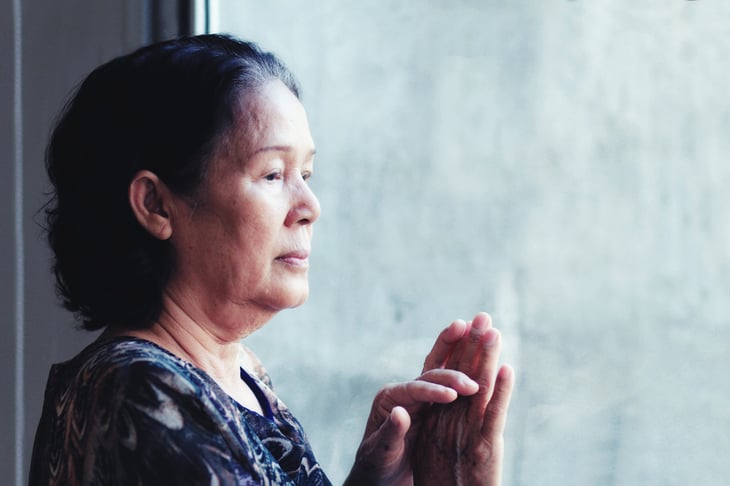
Loneliness can kill. A 2018 study found that isolation may double a person’s risk of dying of cardiovascular disease.
The National Institute on Aging also notes that social isolation is linked to increased risks of depression, cognitive decline, obesity, heart disease and a weakened immune system.
Men are at greater risk of suffering from social isolation. As we reported in “12 Hard Truths About Retirement,” a survey found just 48% of retired men living alone said they were very satisfied with the number of friends they had.
By contrast, 71% of retired women living alone said they were very satisfied with their number of social connections.
So, keep the ties that bind securely fastened as you move through your golden years.
2. Continuing to eat high-sodium foods
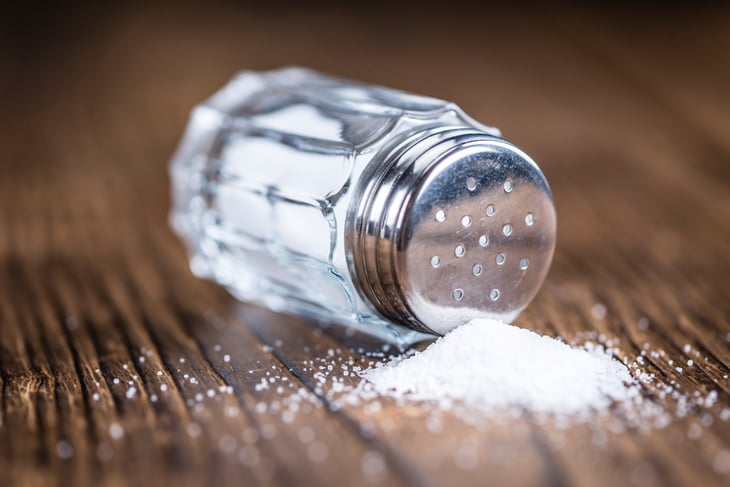
In most Western countries, individual blood pressure readings tend to rise with age. But in other nations, this does not happen. Why not?
The Centers for Disease Control and Prevention says residents of the latter group of nations consume diets that are lower in salt.
About 90% of the sodium we consume comes from salt. In addition, 90% of Americans age 2 and older consume too much sodium.
Reduce your sodium intake, and your blood pressure should fall within a couple of weeks, helping to lower your risk of deadly heart disease and stroke, the CDC says.
3. Putting off colorectal cancer screening

The U.S. Preventive Services Task Force, a panel of experts in prevention and evidence-based medicine, recommends that adults ages 45 to 75 schedule colorectal cancer screening. (For adults who are older than 75, whether to screen is a more individualized decision, as risks and benefits can vary.)
Screening can find precancerous polyps, which are the main source of colorectal cancer. Screening also can find the disease itself in its early stages, when it is most treatable.
Thanks to the Affordable Care Act of 2010, colorectal screening is among a list of preventive services that generally are free for people who have health insurance and are between the ages of 50 and 75. That eliminates the last reason for avoiding something that could save your life.
4. Skipping a daily aspirin
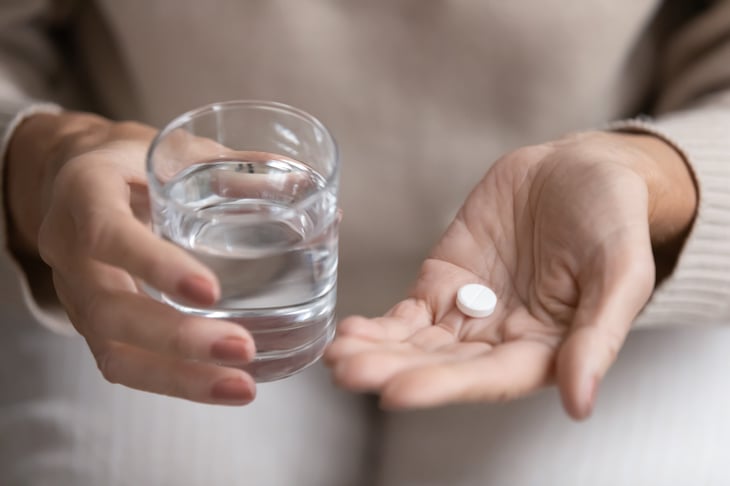
Not everyone over 50 should take an aspirin every day. But it can make sense for those with certain potentially life-threatening health conditions. According to the Mayo Clinic:
“Daily low-dose aspirin therapy may be recommended for the primary prevention of heart attack or stroke if you’re between ages 40 and 59 and you’re at high risk of having a first-time heart attack or stroke within the next 10 years. High risk means your risk is 10% or greater.”
Taking aspirin makes blood platelets less “sticky,” helping to prevent the clots that lead to heart attacks and strokes, explains Harvard Medical School.
However, recent recommendations suggest there is no net benefit to starting an aspirin regimen at age 60 or older.
5. Avoiding the weight room
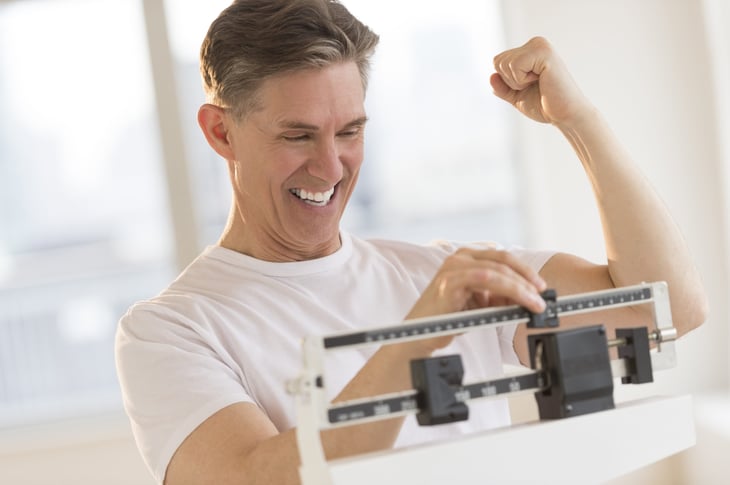
As we age, the risk of the bone disease osteoporosis increases. About 10 million people have osteoporosis, and 44 million more have low bone density, which puts them at risk for the disease, according to the National Osteoporosis Foundation.
If you have osteoporosis, your bones are weaker and at greater risk of breaking. Some of these breaks — such as a hip fracture — can be life-threatening. Nearly one-quarter of people 50 and older die within a year of fracturing a hip.
Women are especially at risk for osteoporosis. In fact, 1 in 2 women will break a bone due to osteoporosis — which occurs more often in women than a heart attack, stroke and breast cancer combined.
Getting enough calcium and vitamin D is key to preventing osteoporosis. Also, weight-bearing exercise is an overlooked way to strengthen bones.
Using free weights, resistance bands or even your own body weight when you exercise not only will strengthen muscles, but also can help you maintain bone density as you age.
6. Drinking too little water
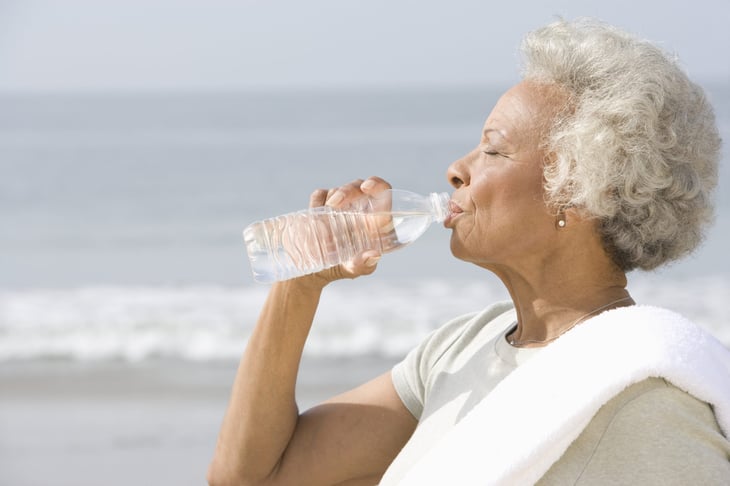
Everyone knows hydration is important — but is it really a matter of life and death?
Yes. And children and older adults are most at risk for the most devastating consequences of dehydration.
The Mayo Clinic notes that older adults carry a lower volume of water in their bodies. In addition, they are more likely to take medications that boost the risk of dehydration. Finally, their sense of thirst is less acute, making it easy for them to forget the need to drink.
Severe dehydration can lead to:
- Life-threatening heatstroke
- Urinary and kidney problems
- Seizures
- Hypovolemic shock (low blood volume shock)
How much fluid do you need each day? It varies. However, as a general rule, the National Academies of Sciences, Engineering and Medicine give the following suggestions:
- 15.5 cups (3.7 liters) of fluids for men
- 11.5 cups (2.7 liters) of fluids a day for women
Note that about 20% of daily fluid intake typically comes from food. In addition to drinking more water, people should eat foods high in water such as fruits and vegetables.
The risk of dehydration increases significantly as you age, so get in the hydration habit now.
7. Not quitting smoking

Kicking the nicotine habit pays dividends at any age. Even if you are north of 50, you can still improve your health — and possibly save your life — by quitting smoking now.
In fact, the improvements can be lightning fast. According to the American Cancer Society:
- Your heart rate and blood pressure drop 20 minutes after quitting.
- The carbon monoxide level in your blood drops to normal a few days after quitting.
- Circulation improves and your lung function increases two weeks to three months after quitting.
More improvements pile up over the next several months. The upshot is that by one year after quitting, your heart attack risk drops dramatically.





Add a Comment
Our Policy: We welcome relevant and respectful comments in order to foster healthy and informative discussions. All other comments may be removed. Comments with links are automatically held for moderation.